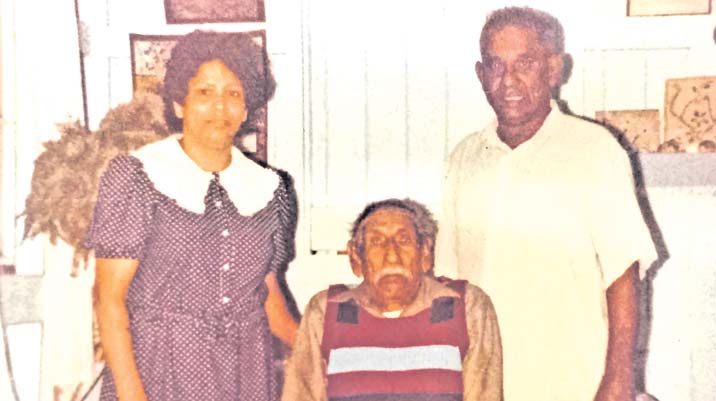Yesterday, we read about how 18-year-old Ram Dayal Nakched departed India on the indentured labourer transport vessel SS Mutlah on May 7, 1915 which docked at Nukulau Island a month later.
In a tale relayed by his grandson Satish Narayan Nakched – a lecturer at the Fiji National University – today we will read about what transpired when the ship arrived in Fiji with 852 girmitya on board.
“All the passengers were asked to line up or fall in, in military terms, and they were paraded to the white potential owners such as plantation managers and other colonial personnel who needed labourers,” Mr Nakched said.
“My grandfather told us that the demand was very high for labourers in the copra, rubber, cotton and banana farms to name a few and the superintendent got his cut when someone was sold off.
“My grandfather was the fortunate one picked by the medical superintendent of Makogai Island in the Lomaiviti Group.
“The island used to house a leper colony run by the colonial government of Fiji and had restricted entry as the disease was very contagious.
“Arriving on the island hospital where the patients were cared for by Roman Catholic nuns, my grandfather had to acclimatise, learn the language and start work in the kitchen.
“His duties were to cook for the medical superintendent and manage the poultry farm for fresh eggs and poultry meat.
“The training he received in the hospital in areas of food preparation and the cleaning of the place placed him in a skilled category by the colonial masters and after his five-year contract was about to expire, he indicated his intention not to renew the contract but was persuaded and asked to be sent to Ovalau and work as the cook for the Levuka Public School hostel.”
Levuka Public School was a prestigious educational institute and the first in the country.
Established in 1879, it attracted children of the colonial leaders in the country.
Mr Nakched said after retiring as the school’s cook, his grandfather settled at Waitovu until his death but during retirement he sold suki in town at Vallabh store.
“He then had acquaintance with the senior civil servants and the government ministers as they were former scholars and boarders of Levuka Public School and people he had cooked for.
“He also mentioned about two brothers who resided at the LPS hostel, and the dinner served was not enough. They used to sneak in his quarters at night for the surplus food that my grandfather smuggled in from the kitchen and that became a common occurrence.
“Later on one of the brothers became a government minister in the ’70s and shocked many when the minister, during his visits to Levuka, used to pay a courtesy visit to the old man.
“There are so many stories narrated by him during the evenings in the light of the kerosene lamp.
“And at times, he would pause for few minutes to gain control of himself emotionally as memories of his family back in India came flooding back.
“He seemed very happy to live in Fiji but was perturbed when the letters written to his family kept being returned, and in the late ’60s no further communication was established.
“My grandfather had two sons and two daughters, but his wife (my grandmother) died early.
“He was a vegetarian who did not consume kava or any sort of liquor but was an occasional suki smoker, a habit he picked up as a teenager in India.
“My grandfather died at the age of 95 years but prior to that he was a physically active man who walked two miles to town in the morning and returned in the afternoon.
“After a very short illness he passed away peacefully in 1985.”



